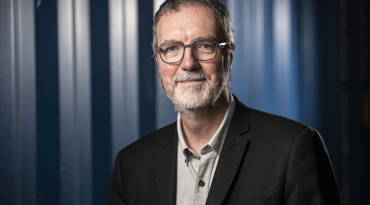Metallurgic companies are not only working more sustainably, they are also playing a key role in the Belgian and European economy in connection with the digital and energy transition, for example. ‘In our country, the metal sector has built up knowledge and knowhow of inestimable value over the years. We need to hold on to this and continue to build on it,’ says Patrick Van den Bossche of Agoria.
The Belgian metal industry has a rich history. The sector has its origins in the 19th century, with the mining of iron ore, for example, and the building of blast furnaces. Thanks to the industrial revolution back then, the Belgian metal sector plays a unique pioneering role in Europe today.
‘Over the years, an entire ecosystem has emerged around Belgian metallurgical companies,’ explains Patrick Van de Bossche, industry expert and strategic advisor on Green Transformation for technology federation Agoria. ‘These companies exchange knowledge with other businesses and with research institutions but are also interconnected by material flows. One company’s residue or by-product is often another company’s raw material.’
That also applies to zinc smelter Nyrstar who continues to create extra value by making by-products such as copper, nickel and cobalt as well as sulphuric acid available or upgrading them for other companies to use. ‘Nyrstar supplies products that are essential for the energy transition,’ Van den Bossche points out. ‘Zinc is essential for the production of batteries and is used as a coating to protect wind turbines and solar panels against corrosion.’
By-products that are obtained via zinc ore will play their own role in the digital and energy transition. For instance, gallium and germanium – both of which are found in zinc ore – are required for the production of semiconductors.

The metal industry supplies products that are essential for the digital and energy transition.
Patrick Van den Bossche,
Strategic advisor at Agoria
Maximum cost of CO2
It is important for the Belgian and European economy that Nyrstar, along with other metallurgy companies, has a foothold here and is able to develop.
‘Belgium produces the largest quantity of metals per capita in Europe and more than half of all the strategic and critical materials for the digital and energy transition in Europe. As a result, our sector is the leader in
Europe, with significant added value and a high level of employment.’
Despite this, conditions remain challenging for the metal industry. Van den Bossche: ‘What is needed for these major companies in our country to be able to work sustainably in the long term and increase their contribution to the digital and energy transition is an appropriate support policy. An energy cost that is competitive with our neighbours is extremely important for these energy-intensive companies. The possibilities that Europe offers us – such as compensation for indirect CO2 emissions – must be fully utilised.’
That way, the metal industry can remain profitable and competitive. For there is no room for negotiation on the global metal market: a ton of zinc costs the same everywhere. ‘The intention cannot be to import our metals from other countries and thereby increase our dependence for critical and strategic materials for the digital and energy transition when we are able to produce those materials here too,’ concludes Van den Bossche. ‘The challenge is to dare to be ambitious ourselves. We need to become attractive to potential investors in this unique Belgian ecosystem. The right policy will play a crucial role in that.’


